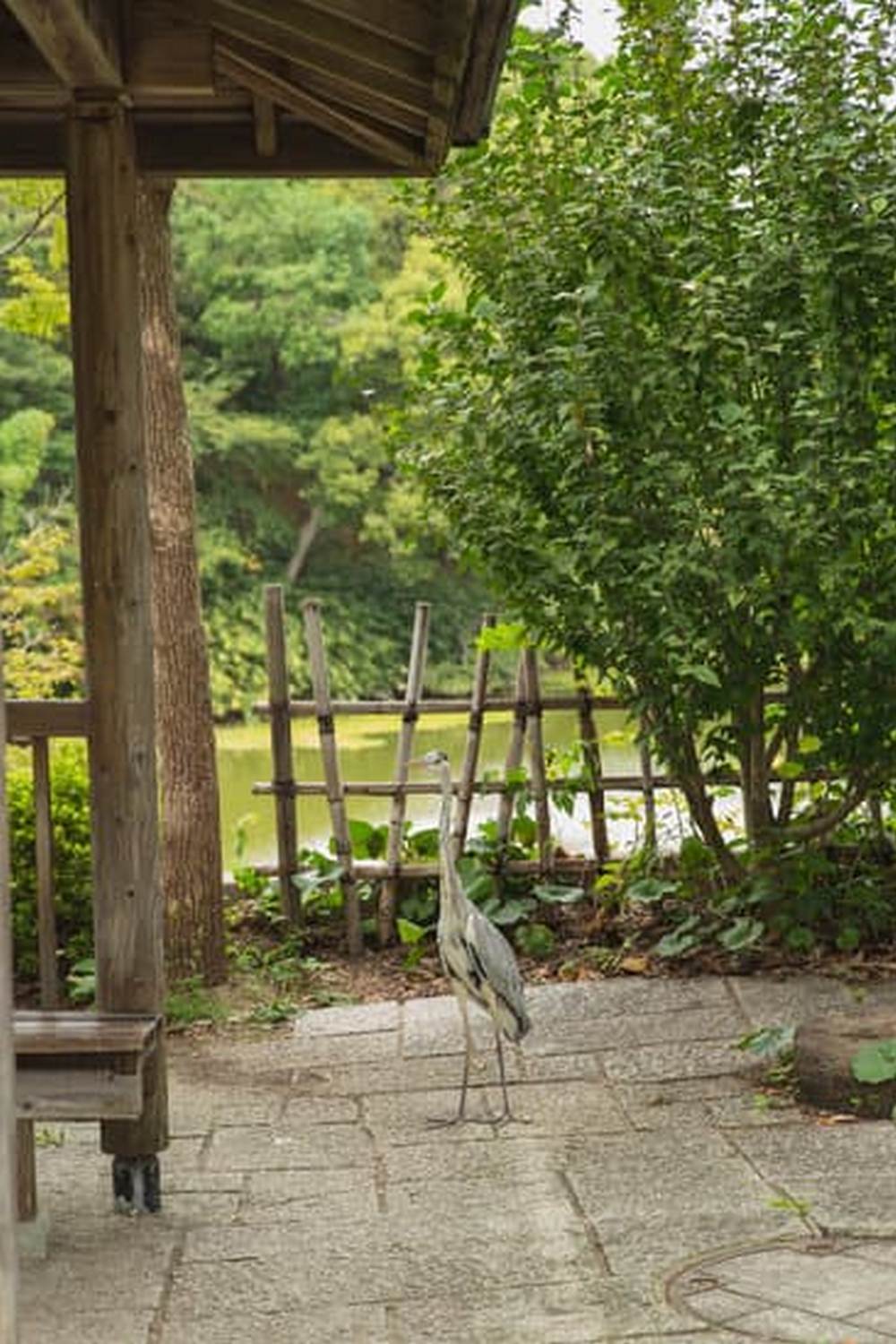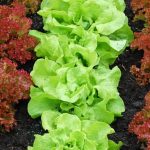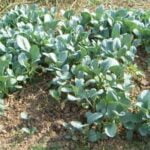Are mothballs safe for vegetable gardens? Many gardeners wonder about the implications of using mothballs in their green spaces. This article will delve into the topic, exploring the purpose of mothballs and their potential effects on vegetable gardens. Understanding the risks and alternatives to using mothballs is crucial for maintaining a healthy and thriving garden.
Mothballs are commonly used as a pest deterrent due to their strong odor, which is effective in repelling insects and other pests. However, while they may be useful in certain scenarios, it is essential to consider their impact on vegetable gardens specifically. The question of whether mothballs are safe for vegetable gardens arises from concerns about the chemicals present in these products and their potential harm to plants and soil health.
In this article, we will explore what mothballs are, how they work, and why they are used in gardening. By examining the common uses of mothballs and the risks associated with using them in vegetable gardens, we aim to provide insight into safer and more natural alternatives for pest control. It is crucial for gardeners to make informed decisions about their gardening practices to ensure the well-being of their plants and the environment as a whole.
What Are Mothballs?
Mothballs are small balls or pellets containing insecticide chemicals, most commonly paradichlorobenzene or naphthalene. These chemicals are known for their strong odor and ability to repel insects and pests. When used in enclosed spaces like closets or storage containers, mothballs release fumes that deter moths, beetles, cockroaches, and other unwanted insects from damaging clothing or other stored items.
The primary function of mothballs is to protect natural fibers, such as wool and silk, from being eaten by clothes moths. The pungent odor produced by the chemicals in mothballs creates a deterrent effect, making the environment inhospitable for these destructive pests. Mothballs work by sublimating directly from a solid state to a gas, releasing vapors that repel insects without leaving behind any residue.
While mothballs are effective at deterring pests in certain contexts like closets and storage areas, they may not be suitable for use in vegetable gardens. The strong odor and toxic nature of the chemicals in mothballs can pose significant risks to both plants and humans if not used properly. Therefore, it is important to consider safer alternatives when it comes to protecting your vegetable garden from pests without risking harm to your plants or yourself.
Common Uses of Mothballs
Mothballs are commonly known for their use in protecting clothing and other stored items from moth damage. However, these small balls contain chemicals such as naphthalene or paradichlorobenzene, which give off a strong odor that is deterrent to pests like moths, cockroaches, and ants. While they are effective at repelling insects, some gardeners may wonder if mothballs are safe for vegetable gardens.
In gardening, mothballs are often used to deter unwanted animals like squirrels, rabbits, or even deer from munching on vegetables in the garden. The strong scent of the mothballs is intended to create a barrier that keeps these critters at bay. Gardeners may also use mothballs to prevent cats or dogs from digging up the soil in their gardens.
While mothballs can be effective at pest control in vegetable gardens, there are potential risks associated with their use. The chemicals in mothballs can be harmful to humans, pets, and wildlife if ingested or inhaled. Additionally, these chemicals can leach into the soil and water supply, posing a threat to the environment. As a result, many experts recommend exploring safer and more natural alternatives for pest control in vegetable gardens.
| Topic | Information |
|---|---|
| Mothball Usage | Repelling unwanted insects & animals in gardens |
| Risks of Mothball Use | Harmful effects on humans, pets, wildlife & environment |
| Alternatives Advice | Explore safer & natural options for pest control instead of using mothballs |
Risks of Using Mothballs in Vegetable Gardens
Using mothballs in vegetable gardens can pose significant risks to both the plants and those consuming the produce. Mothballs typically contain chemicals such as naphthalene or paradichlorobenzene, which are toxic and can be harmful when exposed to humans, animals, and the environment. These chemicals release fumes that deter pests but can also have detrimental effects on the soil quality and plant health.
When mothballs are used in vegetable gardens, there is a high chance of contaminating the soil with these harmful chemicals. Over time, the chemical residues can accumulate in the soil and ultimately affect the growth and overall health of the vegetable plants. Additionally, these toxic substances can leach into groundwater, causing further environmental damage. It is essential to consider these risks before opting to use mothballs as a pest control method in vegetable gardens.
Furthermore, the presence of mothballs in vegetable gardens may increase the risk of accidental ingestion by curious children or pets. The attractive smell of mothballs can be misleading, leading to ingestion that can result in poisoning. To ensure the safety of your family, pets, and the environment, exploring safer alternatives for pest control in vegetable gardens is crucial.
| Effects of Using Mothballs | Risks Associated |
|---|---|
| Soil contamination with toxic chemicals | Impact on plant growth and health |
| Leaching into groundwater | Accidental ingestion by children or pets |
Alternatives to Mothballs
When it comes to protecting your vegetable garden from pests, there are numerous alternatives to using mothballs that are safer and more natural. While mothballs may be effective at deterring pests, they contain toxic chemicals that can be harmful to the environment, pets, and even humans. By exploring alternative methods of pest control, you can ensure the health and safety of your vegetable garden while still effectively managing unwanted insects.
Natural Repellents
One option for keeping pests at bay in your vegetable garden is to use natural repellents such as garlic, onions, or chili peppers. These ingredients can be used to create homemade sprays or deterrents that will ward off pests without the need for toxic chemicals. Additionally, planting companion plants like marigolds, mint, or basil can help repel insects naturally and promote a healthy garden ecosystem.
Physical Barriers
Another effective way to protect your vegetable garden from pests is by using physical barriers. This can include row covers, mesh netting, or even simple fences to keep out animals like rabbits or deer. By implementing these barriers, you can prevent pests from accessing your plants without relying on harmful chemical solutions like mothballs.
Biological Controls
Consider introducing beneficial insects or natural predators into your vegetable garden as a form of biological pest control. Ladybugs, praying mantises, and nematodes are just a few examples of beneficial organisms that can help keep pest populations in check without the need for chemical intervention. By harnessing the power of nature’s own pest control methods, you can maintain a healthy and thriving vegetable garden without resorting to potentially harmful substances like mothballs.
Effects on Vegetable Plants
Mothballs, typically used to deter pests like moths and insects, contain chemicals such as naphthalene or paradichlorobenzene. These substances are known for their strong odor which repels pests; however, they can also have negative effects on vegetable plants if used in close proximity. When mothballs are placed too close to vegetable gardens, the chemicals can seep into the soil and potentially harm the plants. This raises concerns about whether mothballs are truly safe for vegetable gardens.
To understand how mothballs can impact the growth and health of vegetable plants, it is important to consider the chemical composition of these products. Naphthalene, one of the main ingredients in mothballs, is toxic to insects but can also be harmful to humans and animals if ingested or exposed in high concentrations.
Similarly, paradichlorobenzene can release toxic vapors that may affect plant growth and development. When these chemicals come into contact with the soil or roots of vegetable plants, they can disrupt nutrient absorption and lead to stunted growth or even death of the plants.
It is crucial for gardeners to weigh the risks associated with using mothballs in vegetable gardens against the benefits of pest control. While mothballs may effectively deter pests like moths and insects, their potential harm to vegetable plants cannot be overlooked.
As such, exploring alternative methods for pest control that are safer for both plants and the environment is highly recommended. By opting for eco-friendly pest control options, gardeners can protect their vegetable gardens without risking the health and vitality of their crops.
- Plant companion herbs like basil or mint around your vegetable garden
- Use physical barriers such as row covers or netting to protect plants from pests
- Introduce beneficial insects like ladybugs or praying mantises to naturally control pest populations
Ultimately, before using mothballs or any chemical-based pest control method in vegetable gardens, it is crucial to research their potential effects on plants and explore safer alternatives that promote a healthy growing environment for your vegetables.
Eco-Friendly Pest Control Methods
Mothballs are commonly used as a pest control method due to their strong odor that repels insects and other unwanted creatures. However, when it comes to vegetable gardens, the use of mothballs raises concerns about their safety and potential risks. While they may effectively deter pests, the chemicals in mothballs can also have harmful effects on both the environment and the vegetables themselves.
To ensure the health and safety of your vegetable garden, it is crucial to explore eco-friendly pest control methods that do not involve the use of mothballs. Here are some alternative options to consider:
- Companion planting: Integrate plants that naturally repel pests, such as marigolds or garlic, next to your vegetable crops.
- Biological control: Introduce beneficial insects like ladybugs or praying mantises that feed on common garden pests.
- Organic pesticides: Use natural solutions like neem oil, diatomaceous earth, or insecticidal soap to target specific pests without harming beneficial insects or plants.
These eco-friendly pest control methods offer a safer and more sustainable approach to protecting your vegetable garden from harm. By choosing alternatives to mothballs, you can cultivate a thriving garden ecosystem that is free from harmful chemicals and promotes the overall well-being of your plants. Remember, the health of your garden ultimately depends on finding a balance between pest control and environmental responsibility.
Conclusion
In conclusion, it is important to consider the potential risks of using mothballs in vegetable gardens. While mothballs can be effective in deterring pests, they also pose significant dangers to both the environment and human health. The chemicals found in mothballs, such as naphthalene and paradichlorobenzene, can contaminate the soil, water sources, and plants in the garden. This contamination can have detrimental effects on the growth and overall health of vegetable plants.
It is crucial for gardeners to explore safer and more natural alternatives to mothballs when protecting their vegetable gardens from pests. Eco-friendly pest control methods, such as companion planting, using physical barriers like row covers, or introducing beneficial insects, are effective options that do not pose harm to the environment or human health. By opting for these eco-friendly options instead of mothballs, gardeners can promote a healthier and more sustainable gardening practice.
Frequently Asked Questions
Are Mothballs Toxic to Tomato Plants?
Mothballs are toxic to tomato plants because they contain chemicals like naphthalene or paradichlorobenzene that can be harmful when in contact with plant roots. The fumes emitted by mothballs can also negatively affect the growth of tomato plants.
Can Mothballs Contaminate Food?
Yes, mothballs can contaminate food if they are not stored properly or used around food storage areas. The strong odor released by mothballs is a sign of chemical off-gassing, which can lead to food contamination and pose health risks.
Why Do People Put Mothballs in Their Yard?
People put mothballs in their yard to deter pests such as moles, voles, snakes, or other unwanted animals. The strong smell of mothballs is believed to drive these creatures away from the yard or garden area, acting as a natural repellent.

If you’re looking to get into vegetable gardening, or are just looking for some tips on how to make your current garden better, then you’ve come to the right place! My name is Ethel and I have been gardening for years. In this blog, I’m going to share with you some of my best tips on how to create a successful vegetable garden.





